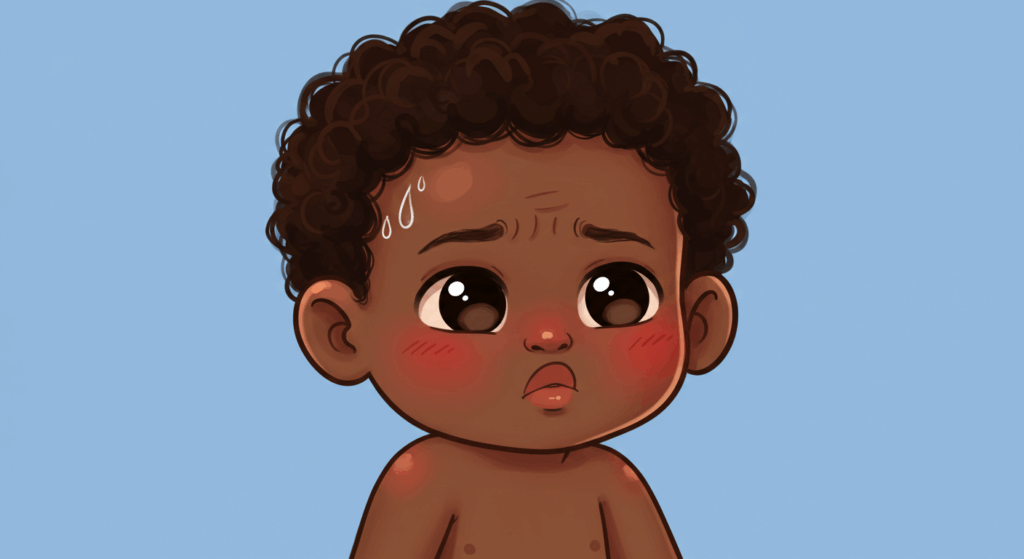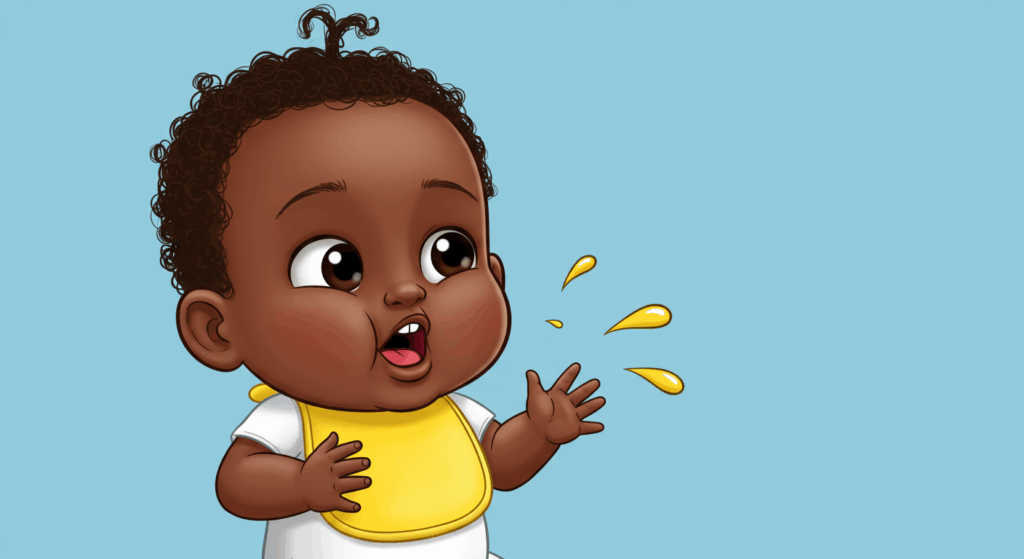Every new mum experiences those moments of panic: “Is this normal?” From sneezes to rashes and strange sleeping patterns, it’s hard to know what’s typical and what requires urgent attention. In Nigeria, where cultural advice mixes with modern medical guidance, those doubts can feel even louder.
This guide breaks down common newborn ailments, how Nigerian mums can manage them at home, and the red flags that mean it’s time to call the doctor. With the right knowledge and calm observation, you’ll learn to tell what’s normal and what needs help.
Why Understanding Common Newborn Ailments Matters
According to Summer Health, Newborns are adjusting to life outside the womb. Their bodies, immune systems, and digestive tracts are still developing. That’s why common newborn ailments – colic, jaundice, skin rashes, hiccups, or congestion – are so widespread in the first few weeks.
In Nigeria, these ailments can feel overwhelming because:
- Weather changes (heat, humidity, harmattan dust) trigger symptoms.
- Family advice often includes traditional remedies.
- Access to healthcare can vary, especially outside cities.
Knowing about common newborn ailments helps you respond calmly, avoid harmful myths, and give your baby the right care.
1. Colic
What It Looks Like
- Long, intense crying (often in the evening).
- Baby pulls legs to chest, clenches fists.
- Not soothed by feeding, burping, or rocking.
What To Do
- Hold baby upright after feeds.
- Gently rock, swaddle, or try white noise.
- Massage tummy or do bicycle leg movements to ease gas.
When To Worry
- Vomiting (not just spit-up).
- High-pitched crying or arching back.
Colic tops the list of common newborn ailments that stress Nigerian parents. It usually peaks around 6 weeks and eases by 3–4 months. Although frustrating, it doesn’t harm your baby. Patience and soothing techniques are key.
2. Jaundice
What It Looks Like
- Yellowing of skin and eyes, often in the first 7 days.

What To Do
- Breastfeed often to flush out bilirubin.
- Monitor if yellowing is mild and baby is feeding well.
When To Worry
- Yellowing spreads to arms and legs.
- Baby becomes very sleepy or refuses to feed.
- Jaundice appears after 7 days.
Jaundice is one of those common newborn ailments that scares parents but often resolves naturally. Nigerian grandmothers may suggest sun exposure – while a few minutes of morning sun can help, it must be gentle, indirect light, never harsh midday sun.
3. Baby Acne
What It Looks Like
- Small red or white bumps on the cheeks, nose, or forehead.
- Appears at 2–4 weeks of age.
What To Do
- Clean gently with lukewarm water.
- Avoid oily creams or adult lotions.
- No medication needed, it clears on its own.
When To Worry
- Rash spreads widely or looks infected.
- Baby is scratching or irritable.
Baby acne is one of the mildest common newborn ailments, caused by lingering maternal hormones. No creams, powders, or harsh scrubbing are needed – just time.
4. Hiccups
What It Looks Like
- Rhythmic jerky sounds during or after feeding.
What To Do
- Burp baby after every feed.
- Hold upright for 20 minutes post-feed.
When To Worry
- Hiccups don’t stop after feeding and cause discomfort.
- Accompanied by choking or breathing issues.
Among common newborn ailments, hiccups are perhaps the most harmless. They resolve on their own, though frequent upright holding can help.
5. Constipation
What It Looks Like
- Straining, passing hard pellet-like stools.
- Less than 3 bowel movements per week (after 6 weeks old).
What To Do
- For formula-fed babies, check dilution ratios carefully.
- Massage tummy or move legs in a cycling motion.
When To Worry
- Blood in stool.
- Baby refuses to feed or seems in pain.
Constipation is one of the common newborn ailments linked to feeding practices. Nigerian mums using formula should pay close attention to water-to-powder ratios. Breastfed babies rarely get constipated, though spacing between stools can be wide.
6. Fever
What It Looks Like
- Temperature above 38°C (100.4°F).

What To Do
- Strip baby to a single layer.
- Offer frequent breastmilk or formula.
When To Worry
- Any fever in a baby under 3 months requires urgent medical attention.
- If baby is listless, feeding poorly, or breathing rapidly.
Fever is one of the most serious common newborn ailments. In Nigeria, where infections like malaria are more common, prompt medical care is essential. Always keep a reliable thermometer at home.
7. Breathing Noises & Sneezing

What It Looks Like
- Noisy breathing or nasal congestion.
- Frequent sneezing.
What To Do
- Use saline drops and a suction bulb.
- Keep the room dust-free and ventilated.
When To Worry
- Baby struggles to breathe or flares nostrils.
- Lips or hands turn blue.
Among common newborn ailments, noisy breathing often alarms mums, but mild congestion is normal. Still, watch closely for labored breathing.
8. Umbilical Cord Care
What It Looks Like
- Cord dries and falls off within 1–2 weeks.
What To Do
- Keep the area dry and exposed.
- Clean gently with a damp cloth if dirty.
When To Worry
- Foul smell, pus, or redness around the navel.
Umbilical cord infections can complicate one of the most routine common newborn ailments. Avoid applying powders, oils, or ash – just keep it clean and dry.
Everyday Baby Health Practices
Many common newborn ailments can be prevented or managed with everyday routines:
- Keep baby clothes soft, breathable, and clean.
- Bathe gently with mild, fragrance-free soap.
- Track feeds, sleep, and diapers in a baby health diary.
- Encourage skin-to-skin contact for comfort and bonding.
Consistency with these practices reduces stress and builds confidence.
Tools Every Nigerian Mum Should Have
Handling common newborn ailments is easier with the right tools at home:
- Thermometer – for checking fever.
- Nasal suction kit – for congestion.
- Baby bath set – to keep skin irritation low.
- Easy-clean clothes – soft fabrics that reduce rashes.
These basics prepare you to manage most common newborn ailments calmly.
Cultural Influences & Omugwo Wisdom
In Nigeria, cultural postpartum traditions like omugwo bring valuable support for mums. Many practices overlap with managing common newborn ailments:
- Light soups and hydration boost breastfeeding and help with jaundice.
- Massaging baby gently aids digestion and colic.
But some traditions can worsen problems:
- Hot water massages may irritate delicate skin.
- Applying herbs or powders to the umbilical cord can cause infection.
Use common newborn ailments knowledge to balance tradition with safe care.
When To Call a Doctor
Even with good home care, some common newborn ailments need professional attention:
- Persistent vomiting, diarrhea, or blood in stool.
- Fever in a baby under 3 months.
- Difficulty breathing or blue lips.
- Jaundice spreading after 7 days.
- Infected umbilical cord.
Trust your instincts. If something feels wrong, it’s worth checking.
Chikaro Recommends
At Chikaro, we know Nigerian mums juggle cultural advice, medical care, and daily stress. That’s why we’ve curated essentials to help with common newborn ailments:
- Reliable thermometers.
- Gentle skincare kits for rashes.
- Nasal suction kits for congestion.
- Soft, easy-wash clothing for comfort.
Practical tools make managing common newborn ailments less stressful.
Final Thoughts
Newborns are delicate, but so are new mums. Most common newborn ailments -from colic to hiccups-are temporary and harmless. With calm observation, gentle routines, and a trusted doctor on standby, you’ll navigate these early weeks with growing confidence.
Take a deep breath, mama. Remember: you’re not alone. Every parent faces common newborn ailments, but with knowledge and love, you’ll handle them just fine.






